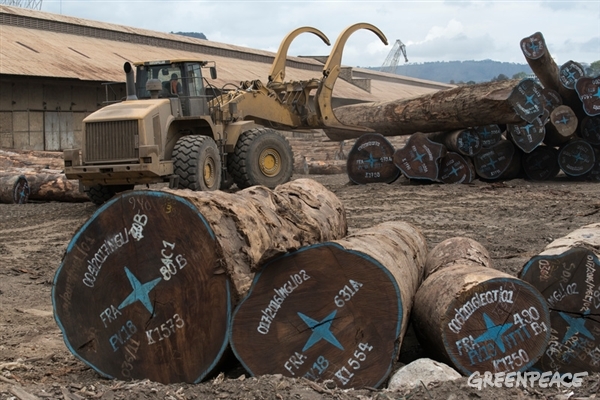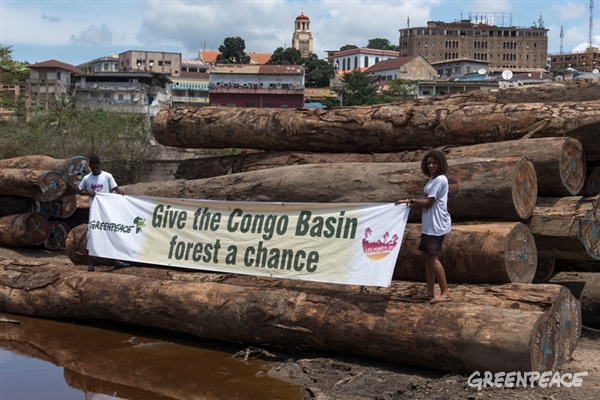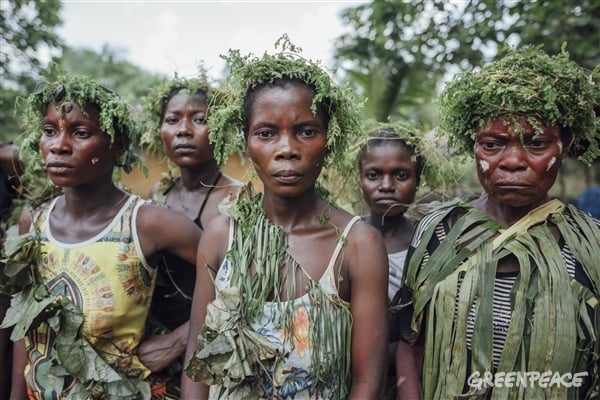The Democratic Republic of Congo (DRC) stands out as the largest forested country (60%) in the Congo Basin region. The country’s 1.55 million km2 of forests also represent around a tenth of the world’s remaining tropical forest. It is home to forest elephants, gorillas, bonobos, okapis, hundreds of bird species and thousands of plants. This forest is also inhabited by local and indigenous communities who depend on it for their livelihoods and spiritual needs. It is therefore crucial for the DRC government to lead the way in developing protective measures for this important forest.
Hellas, this is not the case! As the DRC government speaks with pride at COP23, on behalf of the Coalition for Rainforest Nations on the importance of protecting its forests, it simultaneously held a meeting in Kinshasa on 10 November, to start a process to lift the moratorium on the allocation of new logging permits.
This process also included awarding 20,000 km2 of forest – equivalent to the size of Wales and 15,000 km2 above the legal limit to the company that would be giving financial support to this process. It is a real disappointment to think that the same Minister of Environment and Sustainable Development who put his wish on the Wish Tree during the “Give the Congo Basin forest a chance” ship tour in Matadi, a mere week later, would organise a meeting to begin this process.

A ministerial order in May 2002 first established the DRC’s moratorium on the award of new industrial logging permits. In the weeks following its signature, the moratorium was violated, with the allocation of scores of illegal titles. However, a presidential decree reinforcing the 2002 order was signed in 2005. It is true, that a moratorium is a temporary measure which can be lifted when set conditions are met. However, only two of the three requirements set for the moratorium to be lifted have been met. That is, legal review of all existing industrial titles and the publication of new rules for title allocation. The geographic programming of future allocations through a consultative process is still pending.

Therefore, lifting the moratorium now does not allow fulfilment of the legal conditions set out in the presidential decree. Even if this last condition is met, the governance of DRC’s forest sector, especially linked to the breaches of this moratorium exposed by Greenpeace Africa in 2016 and 2017, still needs improvement before this moratorium could be lifted.
The moratorium has for many years restrained DRC’s chaotic and often illegal logging industry and helped to keep the country’s forests relatively intact. An expansion of industrial logging following the lifting of the moratorium would unleash a tidal wave of environmental destruction, social abuses and corruption. It would also create a significant increase in carbon emissions, including from the recently discovered and extensive peat deposits which underlay many areas of DRC’s forest.

Communities have long waited for the right to secure tenure to forests on which they depend for their livelihoods. It is crucial to secure these rights in the land-use planning process as well as for the development of community-based forest management.
The DRC Government and The Central African Forest Initiative (CAFI) agreed on milestones for their partnership, including commitment from DRC to ensure transparency, accountability and good governance in the forestry sector. CAFI needs to exert pressure the DRC government not to lift the moratorium and to freeze further funding disbursements until credible commitment to end this process is demonstrated.
Along with my team, we call on the DRC government to renounce its plans to move towards a lifting of the moratorium and to cancel any agreement to hand out 20,000km2 of its forests.

Discussion
Dear President Tshisekdi, I am saddened to hear that logging is to be allowed in your beautiful country. In this day we know so much more of how important our wild places are. Please reconsider. Thankyou
Thank you for your support.